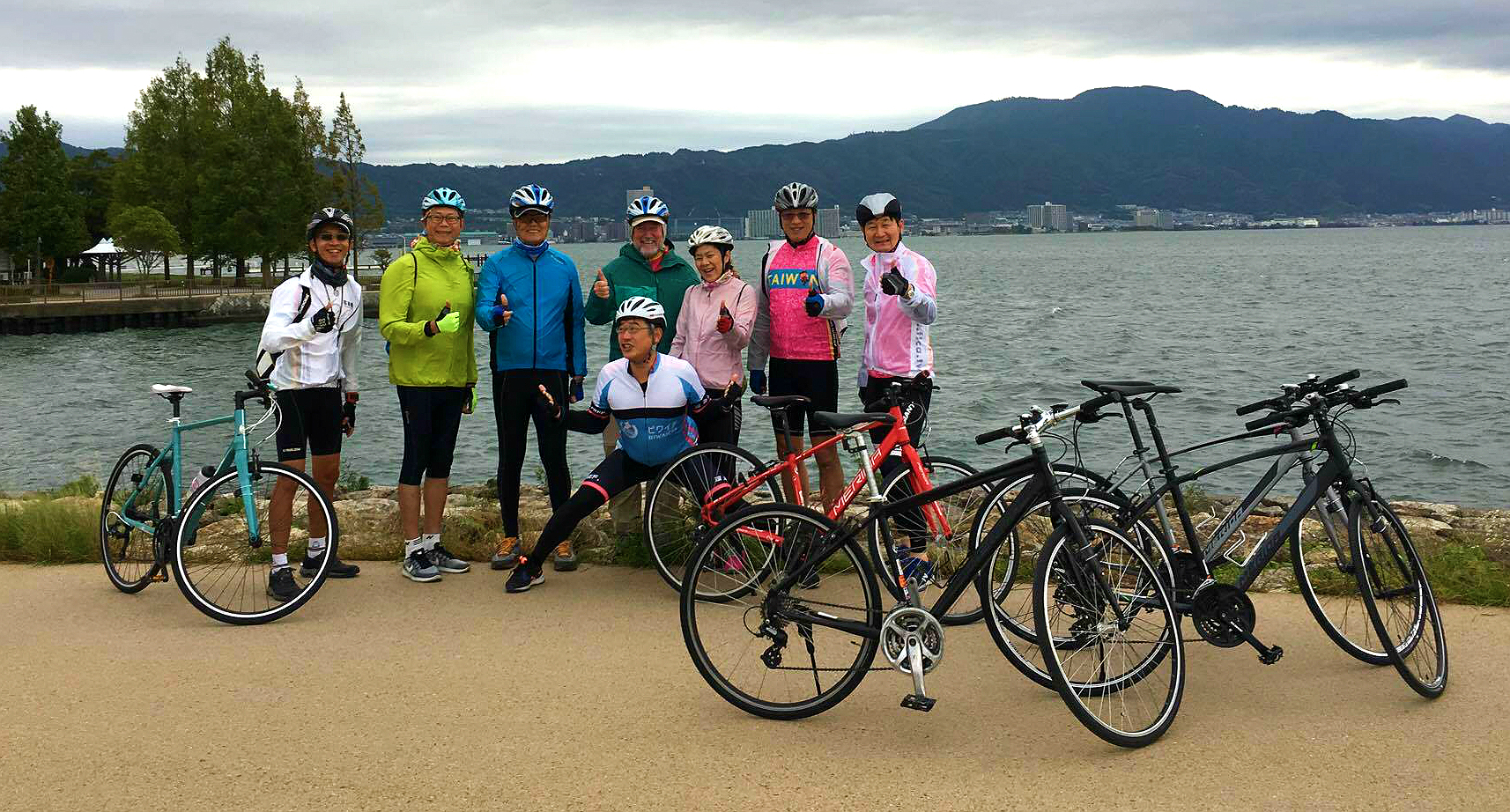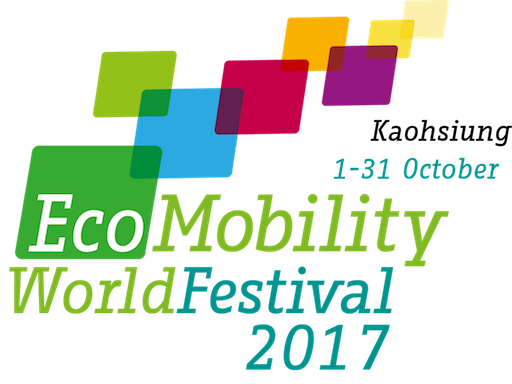
Introducing “Fusion Mobility” in Taiwan and Discovering Japan by Bike: ECF President Manfred Neun’s Trip to Asia
During the months of September and October, ECF President Manfred Neun was invited to take part in various transport and mobility events in Asia, and we take this opportunity to report on the stages of his Asian trip focused around the future of connected transport and cycling tourism.
First, he spent ten days in Taiwan participating in the International Symposium on Travel Demand Management (TDM) that took place between 26 and 29 September 2017. The symposium series has been running for 20 years, and is organized mainly for TDM researchers and professionals with the aim to foster more efficient transport solutions mainly in public transport, but now implementing increasingly greener and healthier mobility practices. This event brought together the domestic and international TDM research community to brainstorm ideas for the present and future of TDM practices for improved sustainable mobility. While TDM is still work in progress, more and more cities are becoming involved and particularly interested in the issues TDM addresses and solutions it proposes.
Manfred first participated in a panel discussion on Transit Oriented Development (TOD), and also held a presentation as part of Session II of the Symposium, dedicated to Active Mobility. He highlighted all the advantages of nowadays connected mobility if consequently combined with active mobility, and for that purpose he proposed the term fusion mobility; a way to connect advances in communications with active mobility. Since one of the main problems in discussions about Intelligent Transport Systems (ITS) is that the opportunities and advantages in connecting transport modes are well known (inter-/trans-/multi-modality), but not used well enough, Manfred suggested this problem could be better tackled by prioritizing active mobility, and no argument was raised against it. Bigger connection of different modes of transport, putting active mobility first and combine it with advances in communication could efficiently solve many issues, and thus fusion mobility could be the right answer.
 Manfred also participated in the EcoMobility World Congress 2017 under the subtitle “Livable, Shared, Intelligent”, taking place between 2 and 4 October 2017 in Kaohsiung, Taiwan, as part of the EcoMobility World Festival. The conference is an annual event organized by ICLEI - Global Cities Network, specifically dedicated to sustainable development. The festival was a great opportunity for city governments to experiment with creative ecomobile solutions, with the aim to create more livable cities. It also gave residents the opportunity to experience how integrated, socially inclusive and healthy transport options can improve their quality of life.
Manfred also participated in the EcoMobility World Congress 2017 under the subtitle “Livable, Shared, Intelligent”, taking place between 2 and 4 October 2017 in Kaohsiung, Taiwan, as part of the EcoMobility World Festival. The conference is an annual event organized by ICLEI - Global Cities Network, specifically dedicated to sustainable development. The festival was a great opportunity for city governments to experiment with creative ecomobile solutions, with the aim to create more livable cities. It also gave residents the opportunity to experience how integrated, socially inclusive and healthy transport options can improve their quality of life.
Manfred participated in three sessions of the Congress, first one being Safer And Healthier Cities For Us And Our Children aimed to address excessive dependence on conventionally powered motor vehicles that worsen the air quality increasing the risk of respiratory illnesses, as well as discourage physical movement. Manfred’s presentation was titled Active mobility for a healthier and more equitable society, and his ambition was to once again focus on the positive impacts of active mobility, this time specifically linked to positive health outcomes. Another participation was in a session Kaohsiung EcoMobility Dialogues (KED) #1 subtitled People, Pedals, Parks, where he held a keynote speech with a title City on a bike. Manfred was also one of three speakers in a Young Professional Workshop, targeted towards young researchers and professionals with an interest in sustainable urban mobility and the urban environment to discuss the latest trends and outlooks in shared mobility.
 After a productive stay in Taiwan, it was time for Manfred to continue his Asian tour in Japan. He was invited to visit the beautiful lake Biwa, the biggest lake in Japan, north east of Kyoto in Shiga Prefecture, renowned for great touristic cycling opportunities. The starting point of the trip was the visit to Shiga Prefecture, where Manfred was first warmly welcomed by the governor of the prefecture, Mr. Taizō Mikazuki. After that an official meeting took place, organized by the friends from Taiwan; Chung Hua University, that is also running a collaboration on cycling tourism with Shiga, and National Taiwan University (NTU) that hosted the previously mentioned TDM Symposium.
After a productive stay in Taiwan, it was time for Manfred to continue his Asian tour in Japan. He was invited to visit the beautiful lake Biwa, the biggest lake in Japan, north east of Kyoto in Shiga Prefecture, renowned for great touristic cycling opportunities. The starting point of the trip was the visit to Shiga Prefecture, where Manfred was first warmly welcomed by the governor of the prefecture, Mr. Taizō Mikazuki. After that an official meeting took place, organized by the friends from Taiwan; Chung Hua University, that is also running a collaboration on cycling tourism with Shiga, and National Taiwan University (NTU) that hosted the previously mentioned TDM Symposium.
The highlight of the visit was a two-day cycling trip around lake Biwa, some of it done under the rain, which, however, did not spoil the experience. As part of the visit Manfred was kindly asked to evaluate cycling abilities in the region, and he is currently working on the trip evaluation. A first draft with recommendations based on the already established standards of the EuroVelo will be out soon, and the collaboration with Shiga Prefecture will continue in the future.
On a long term perspective, these visits and collaborations had all aspects of global cycling advocacy in, from cities and regions collaborations, academic network development – as Taiwan is participating actively in S4C since its launch in 2010 – and also industry and cycle tourism engagements. On the academic side a significant step was already done in 2014 when Prof Jason Chang from the NTU launched the Active Mobility Forum, and overall it was the impact of a very successful Velo-city Global 2016 in Taipei where we can see the various seeds growing now.
Contact the author
Recent news!
Upcoming events
Contact Us
Avenue des Arts, 7-8
Postal address: Rue de la Charité, 22
1210 Brussels, Belgium









